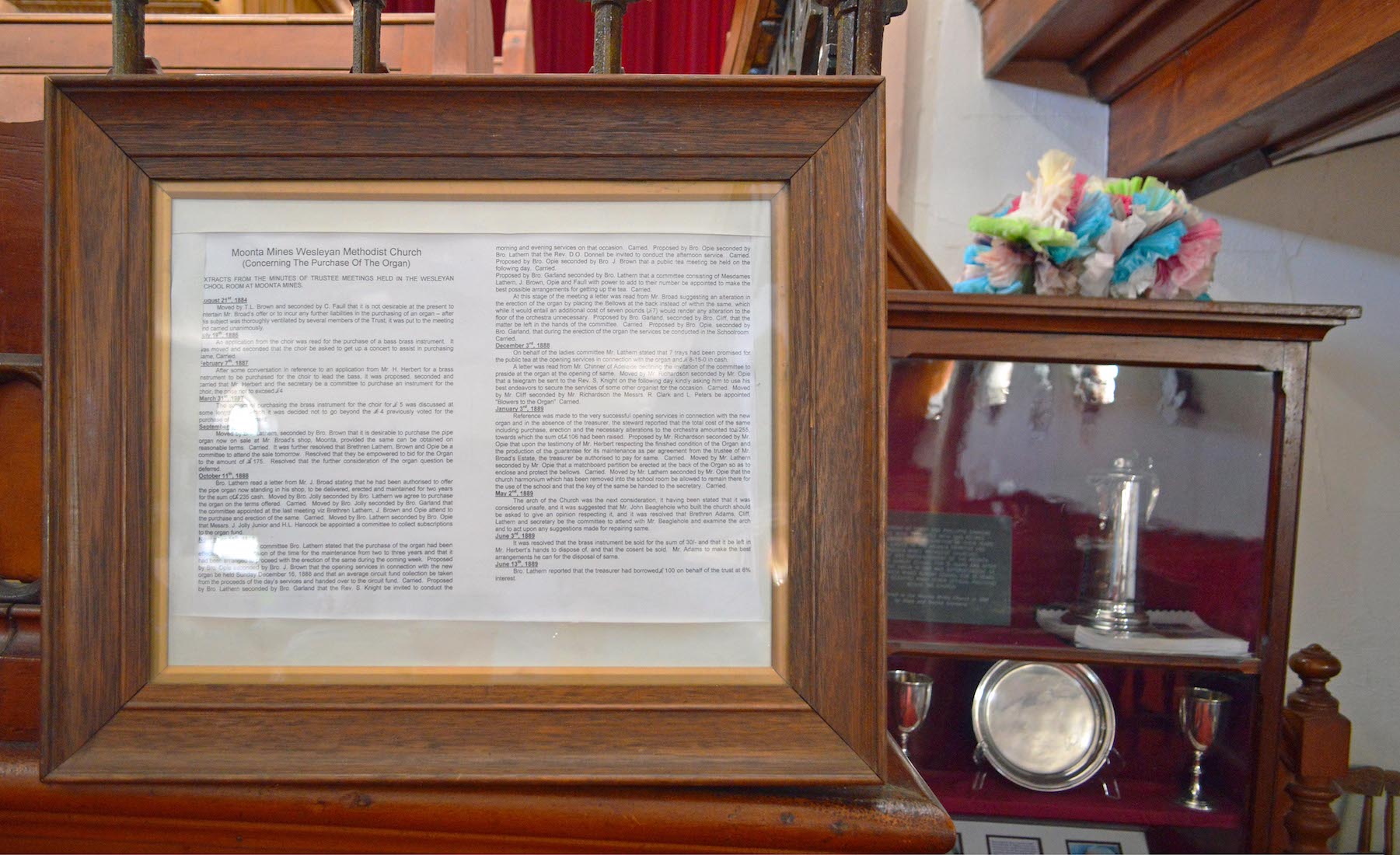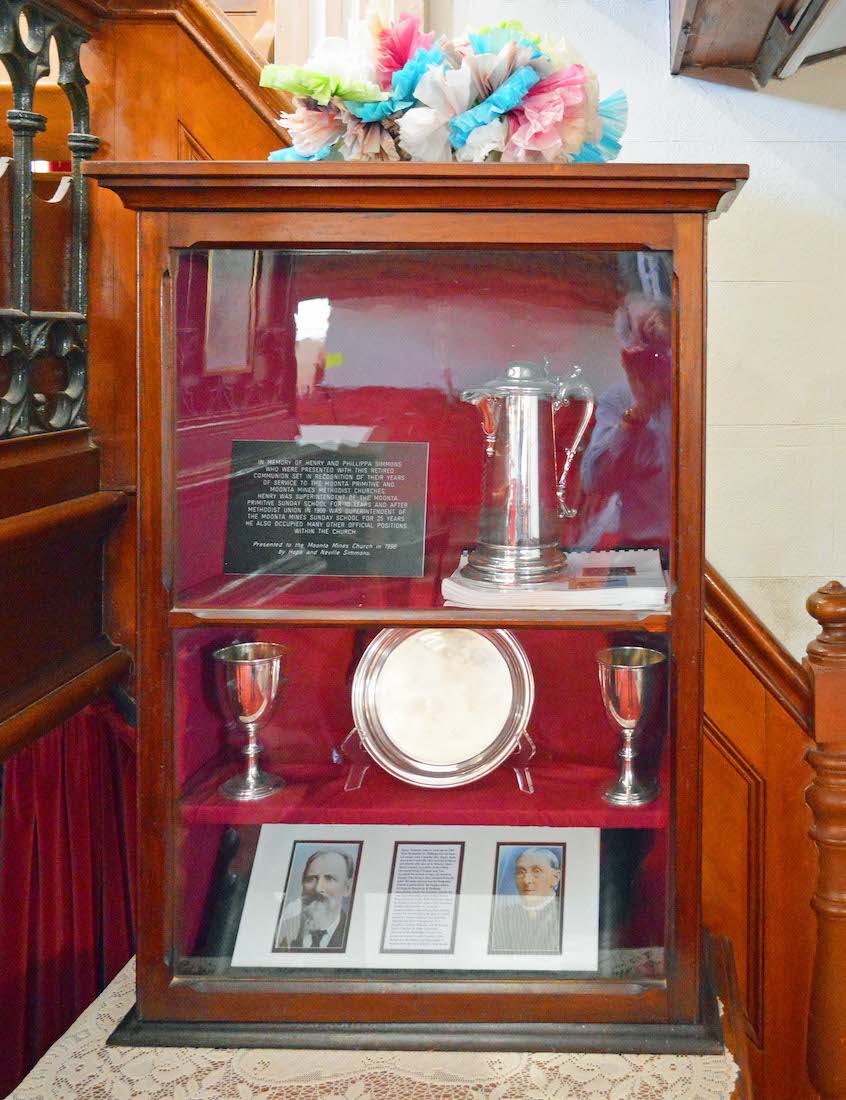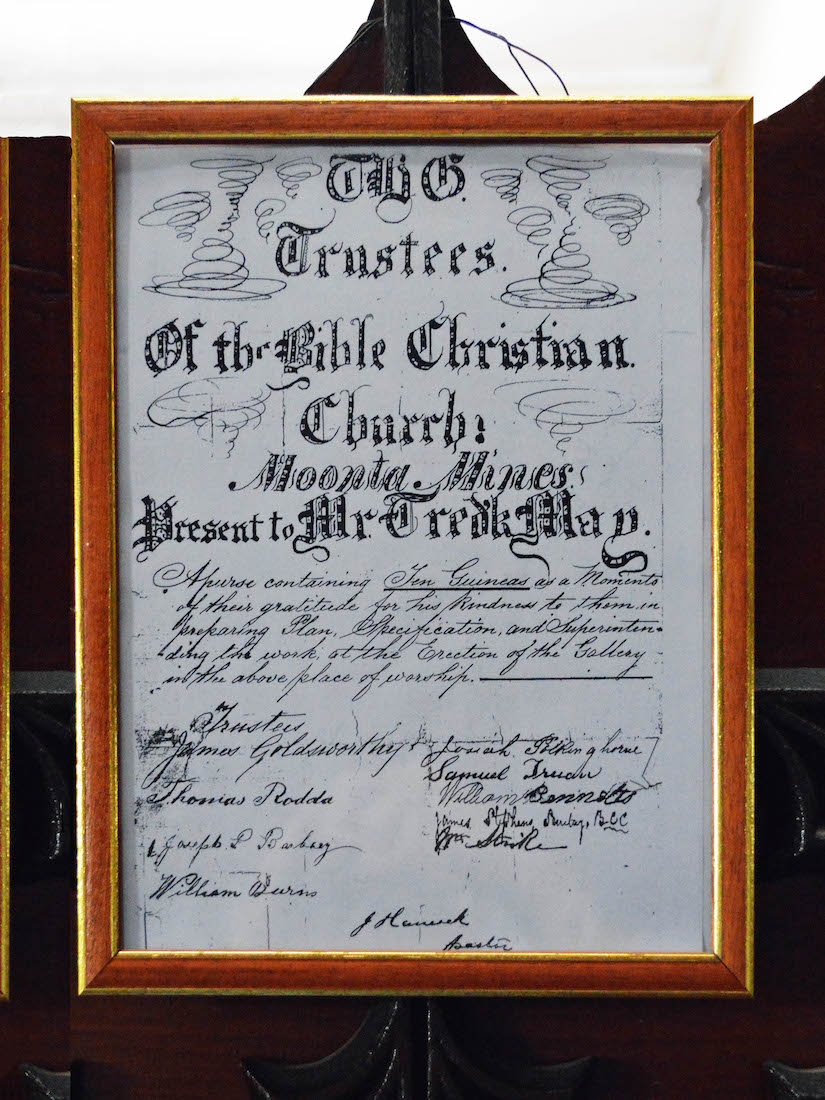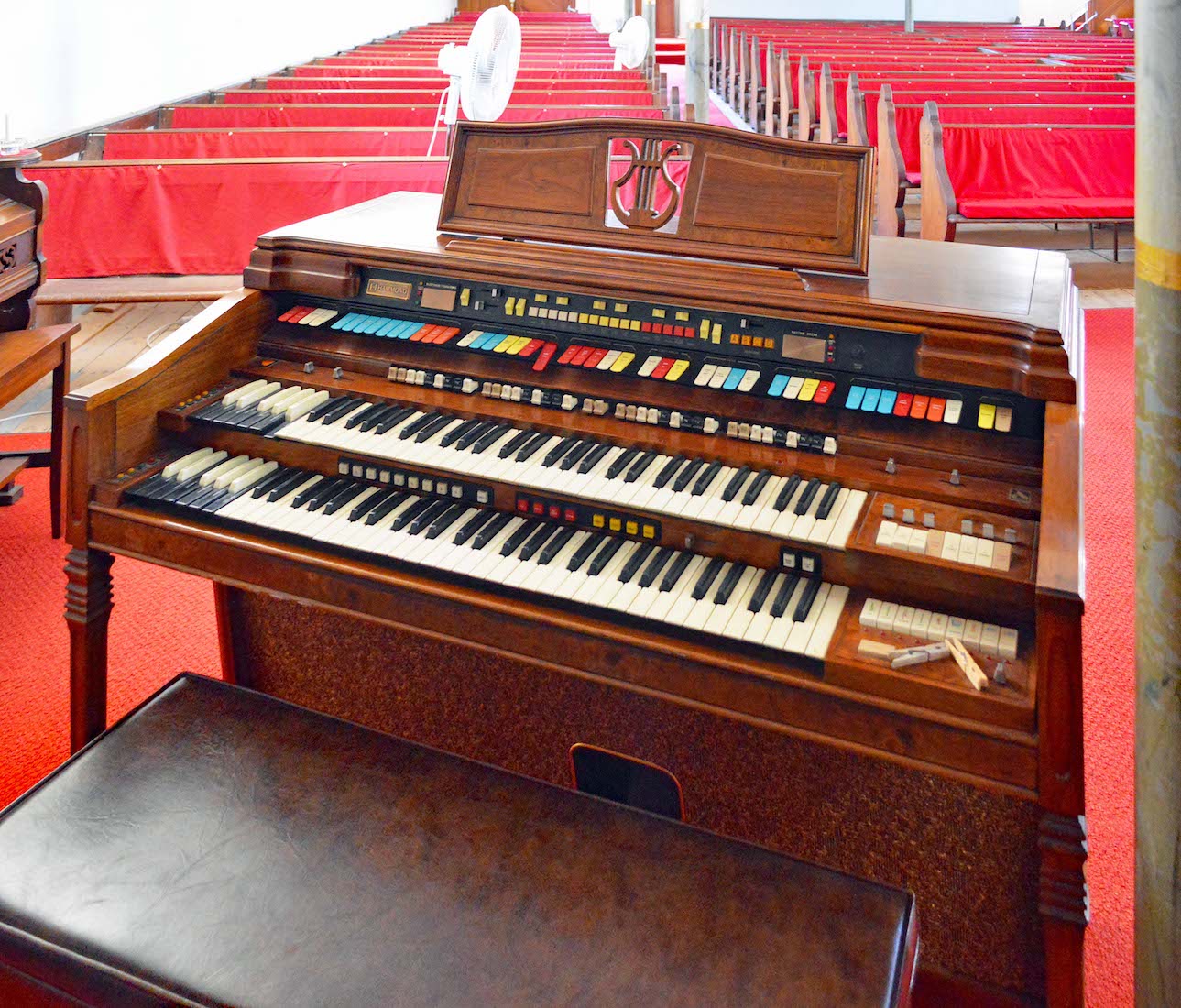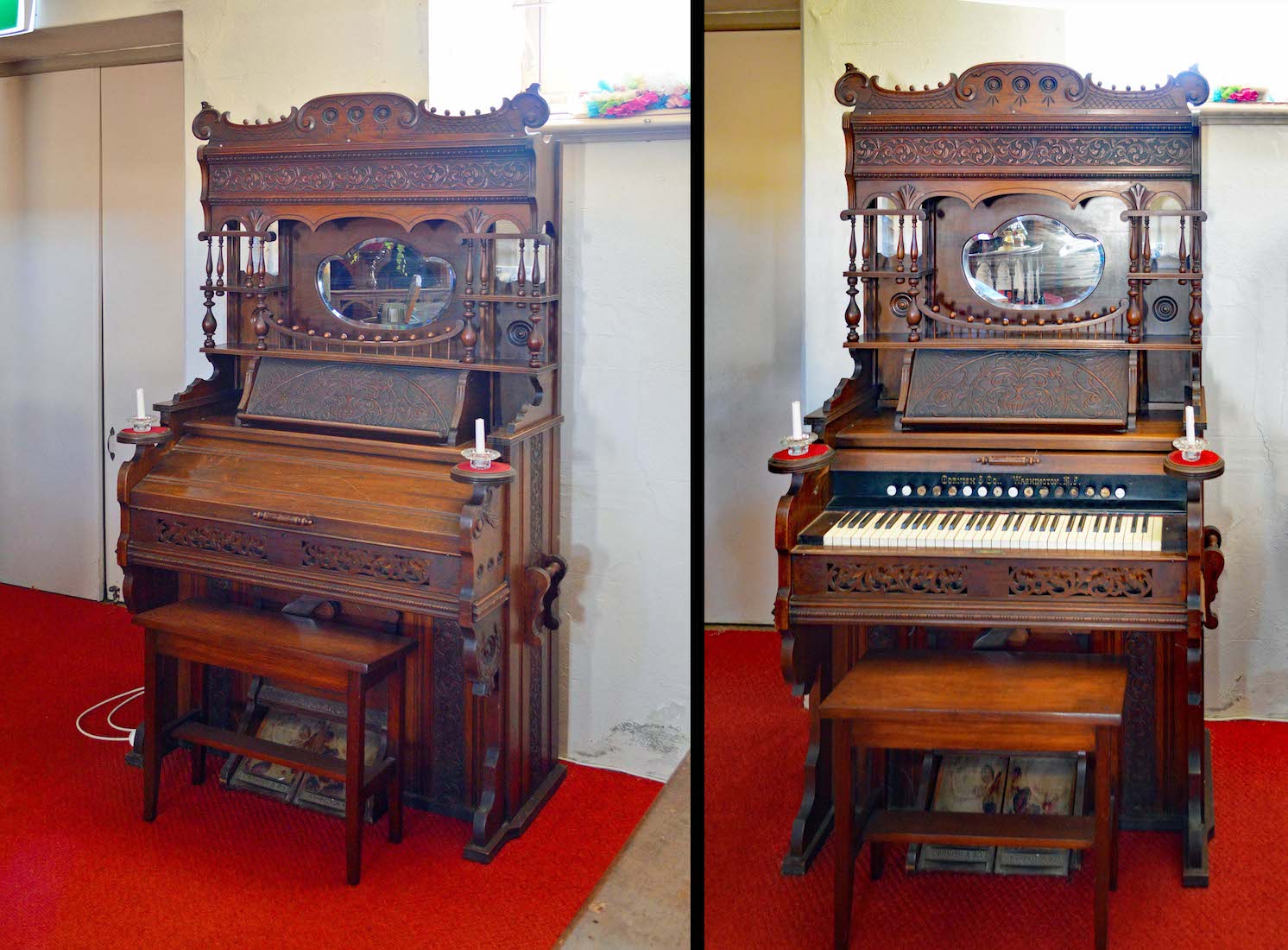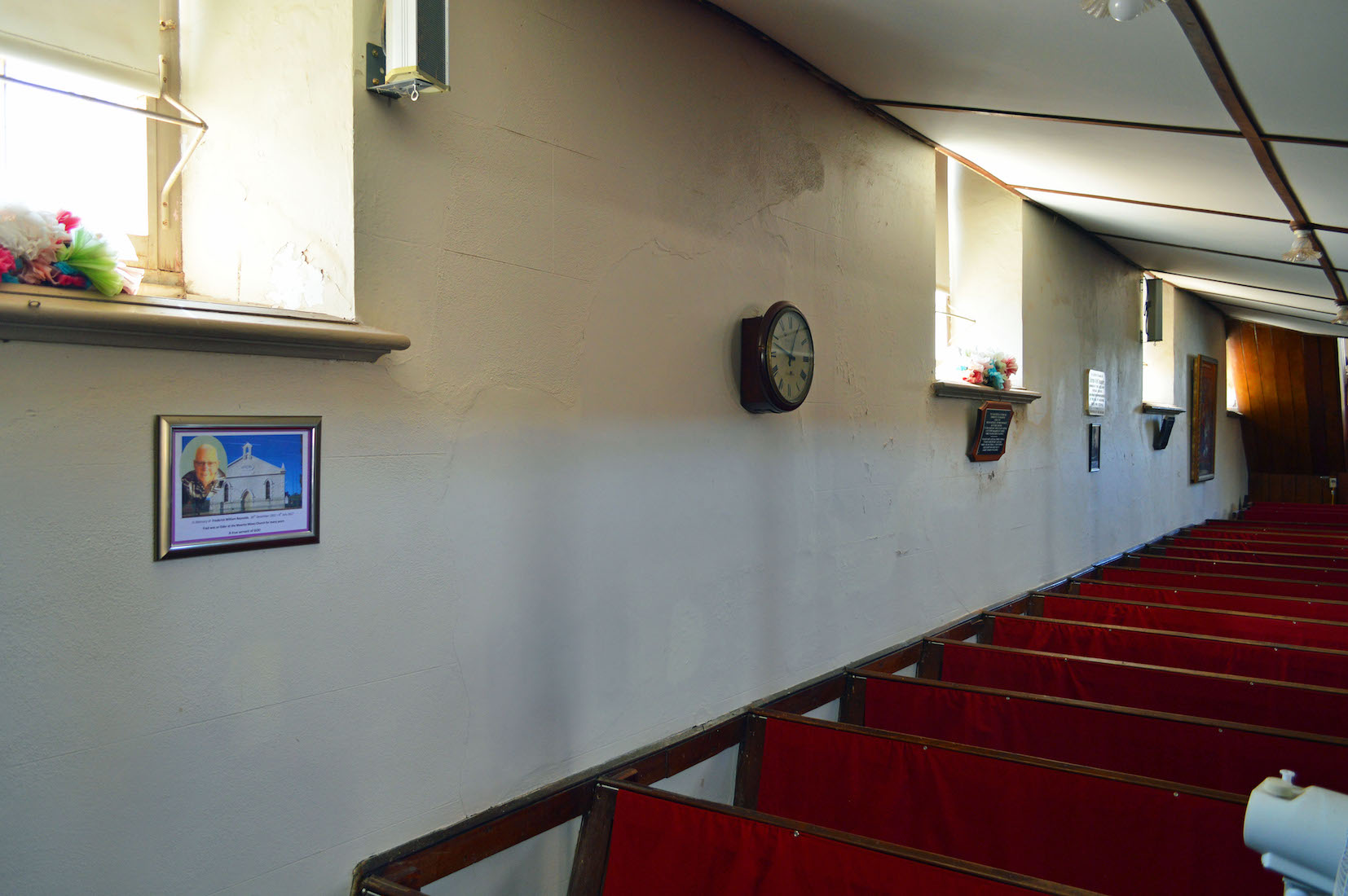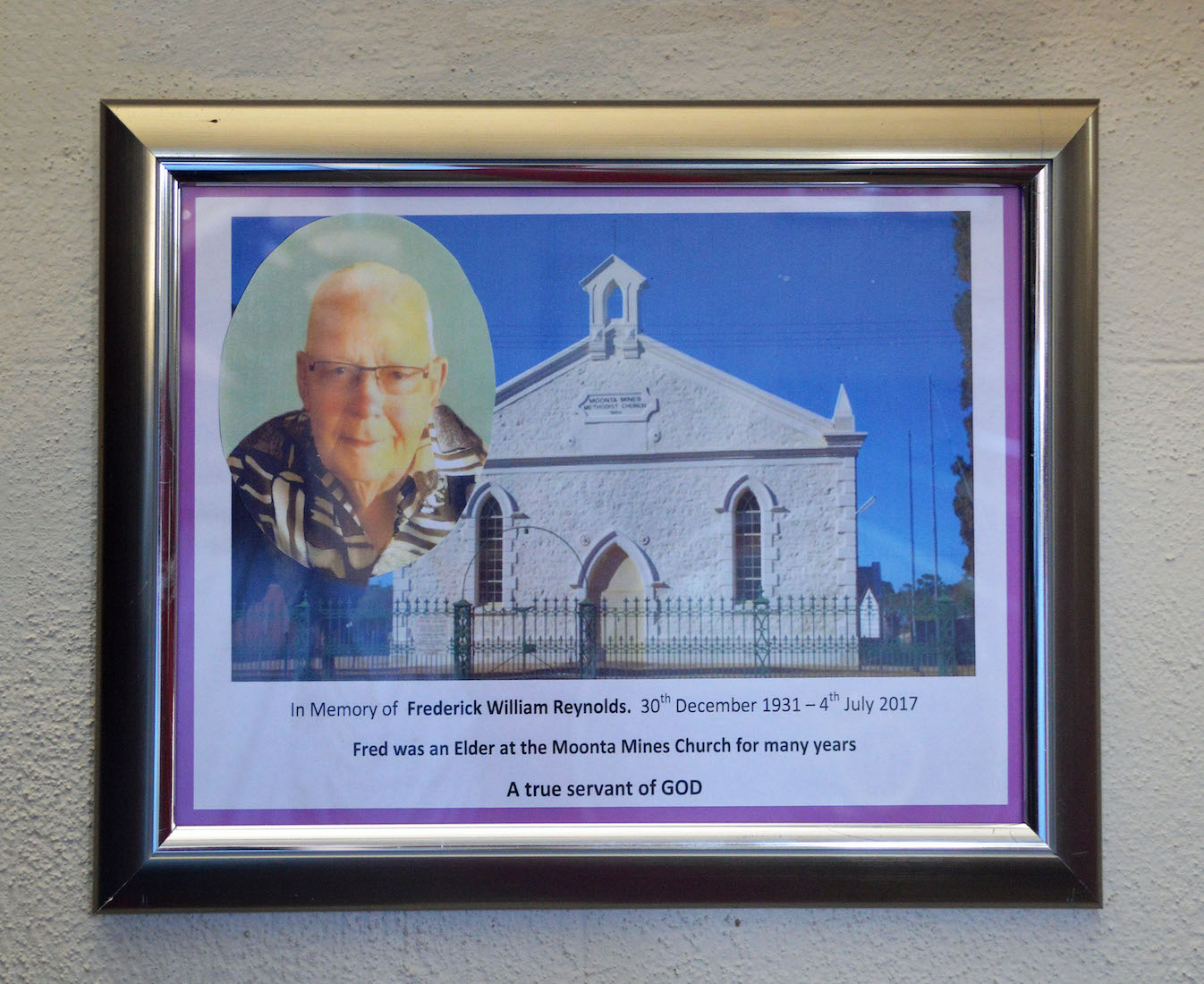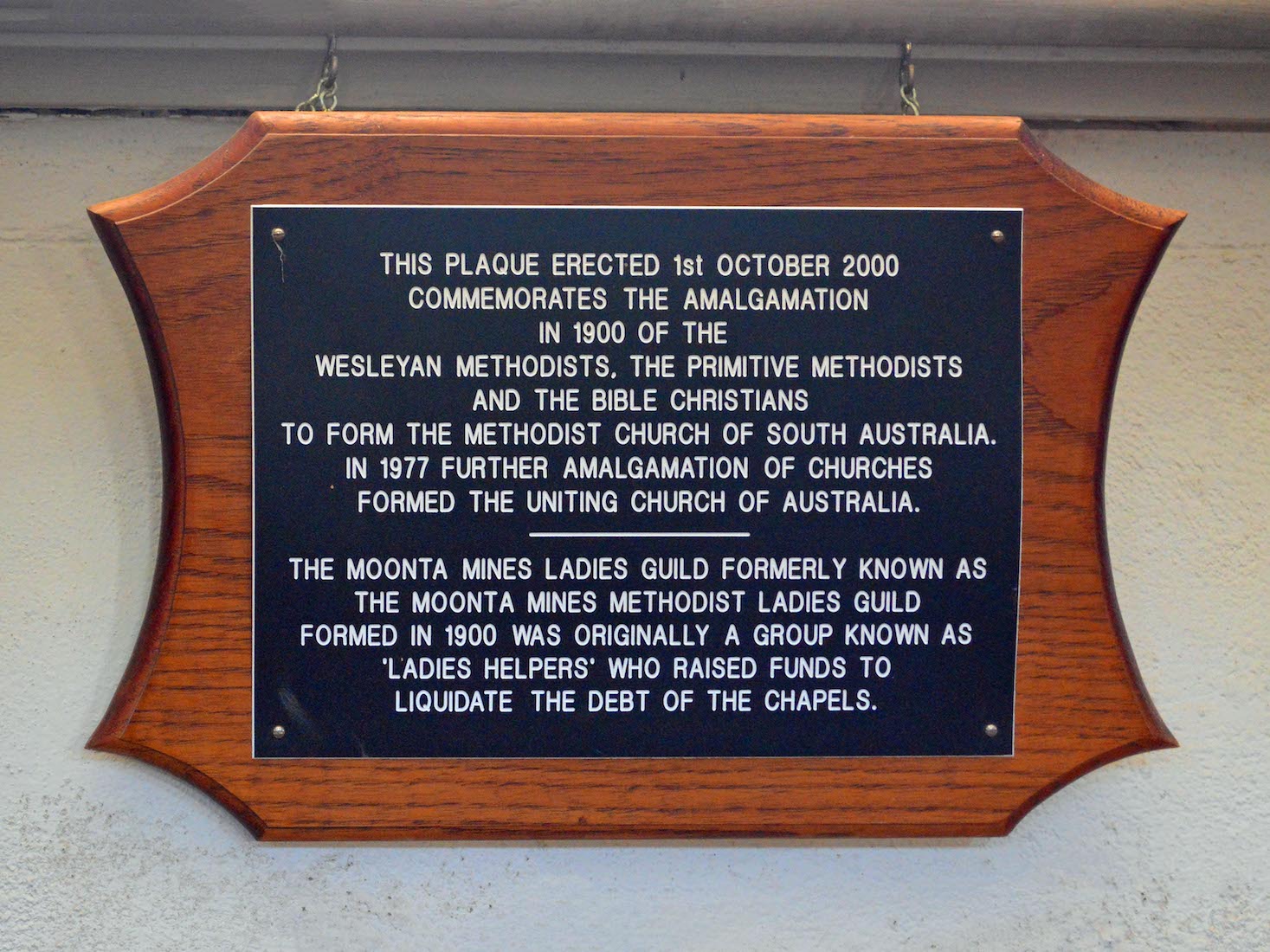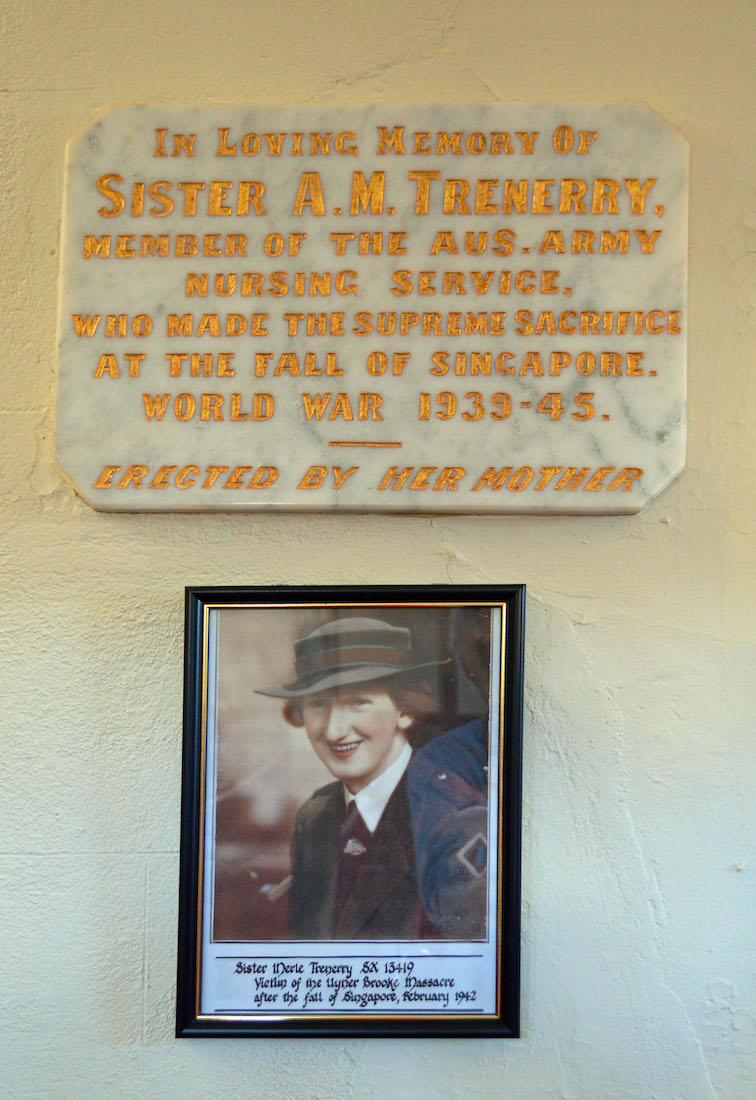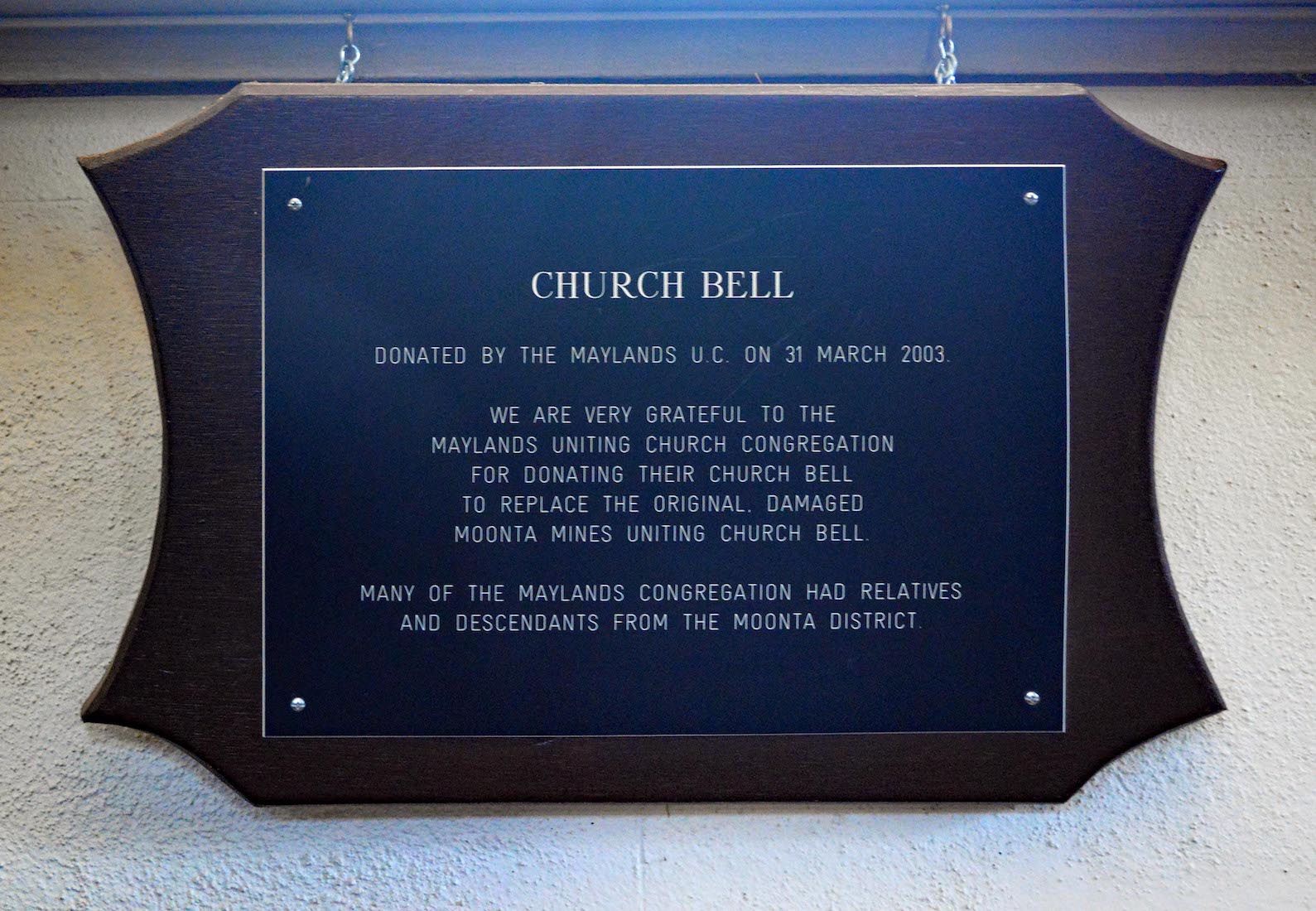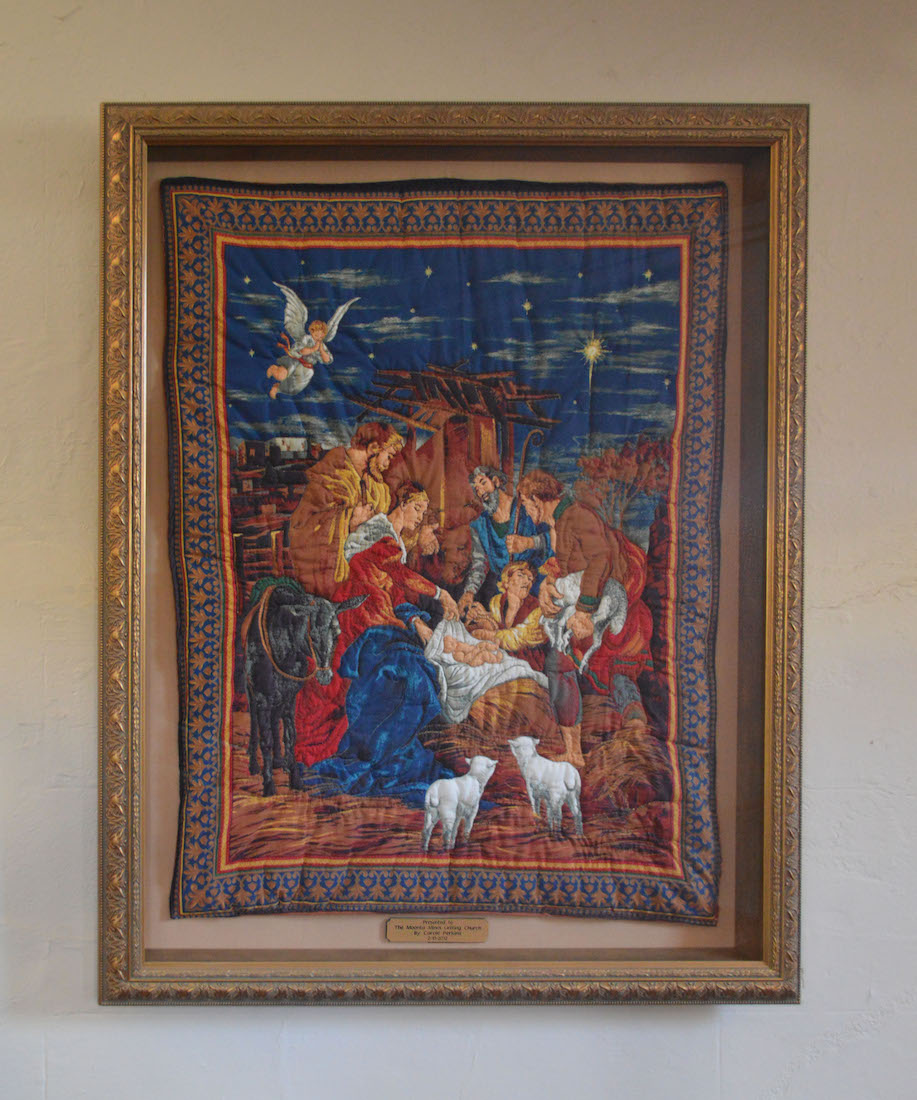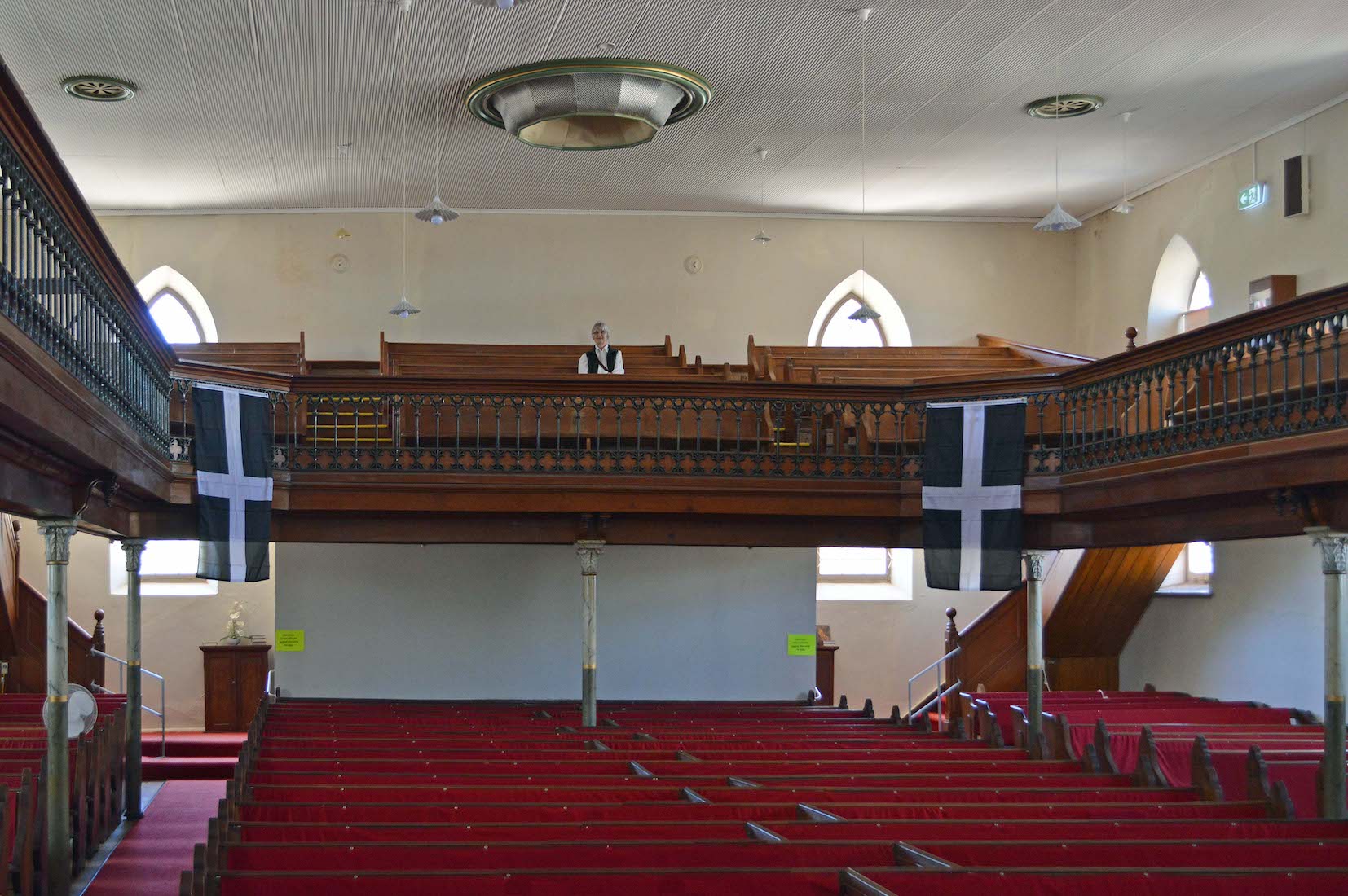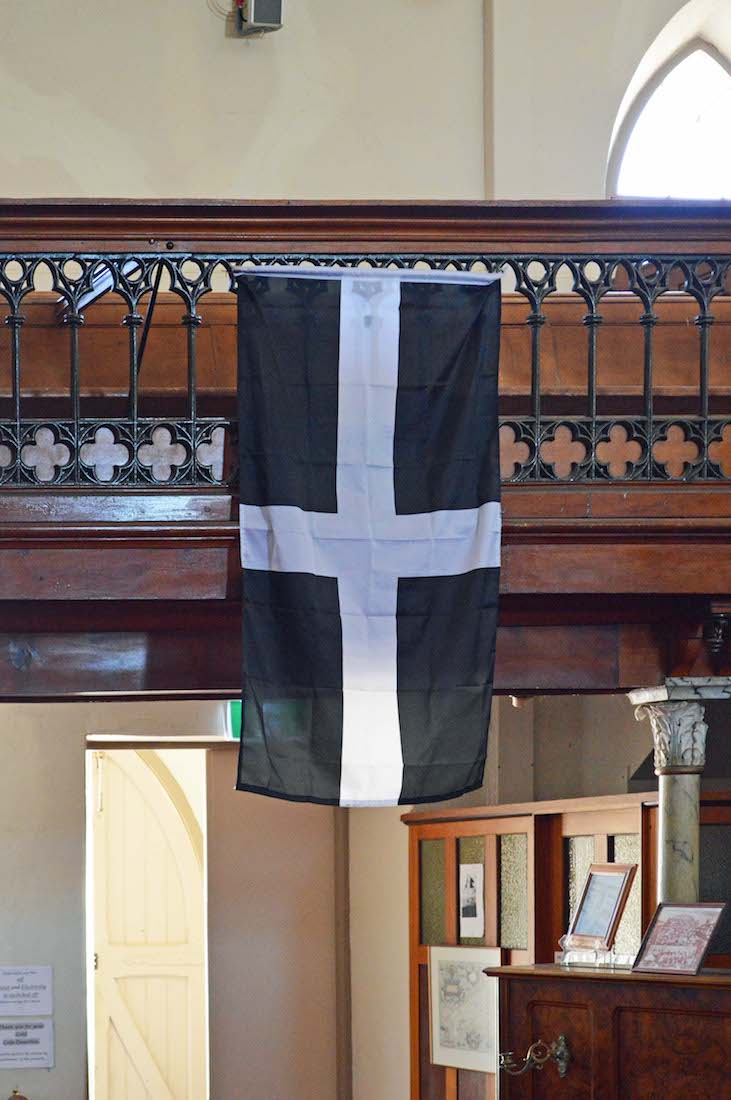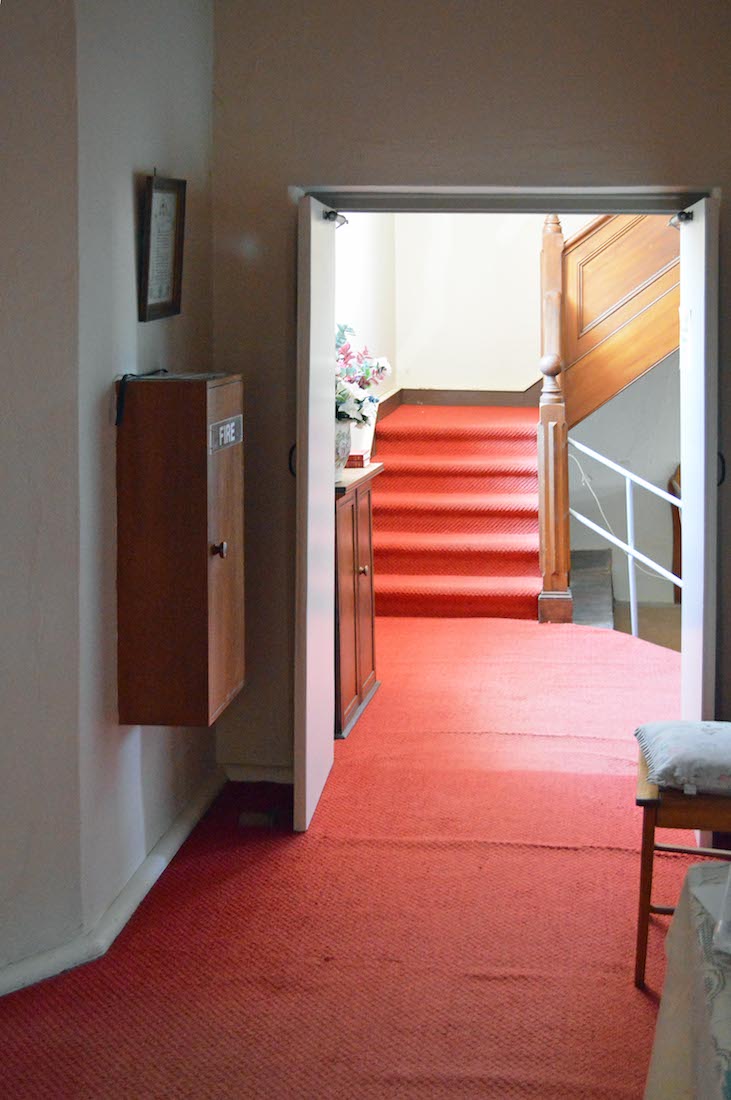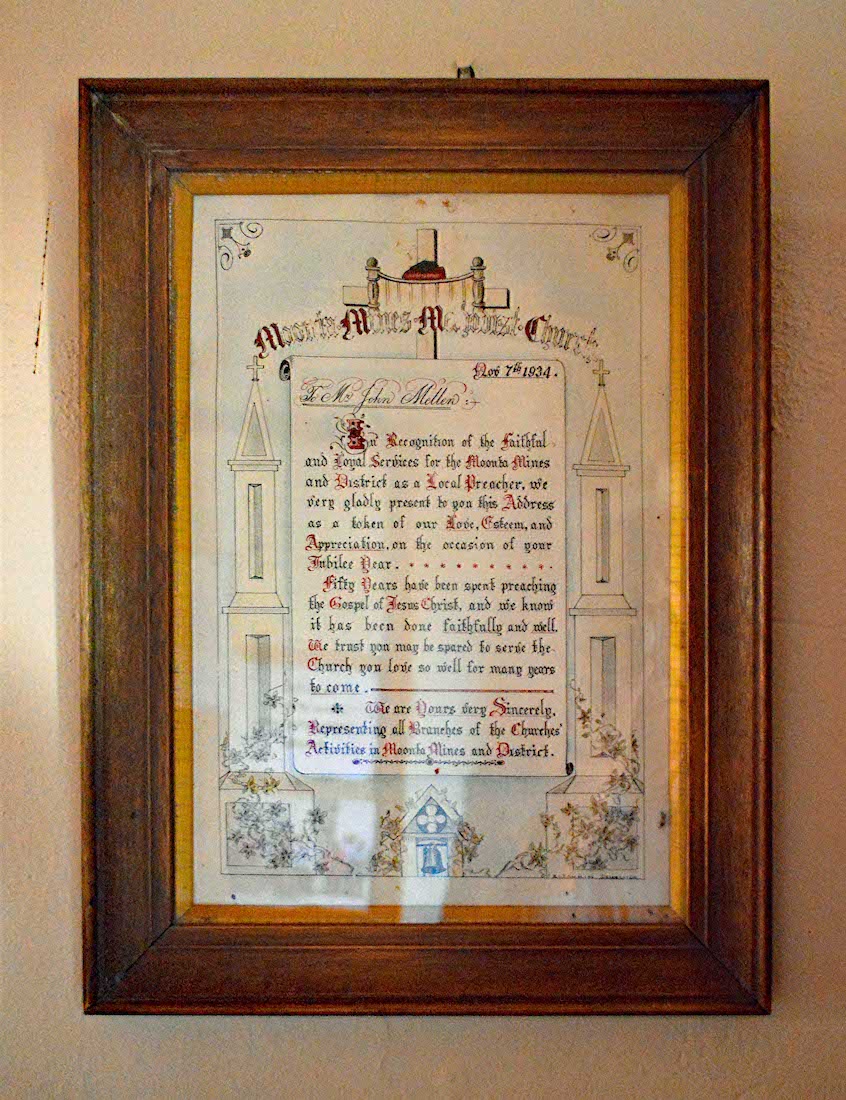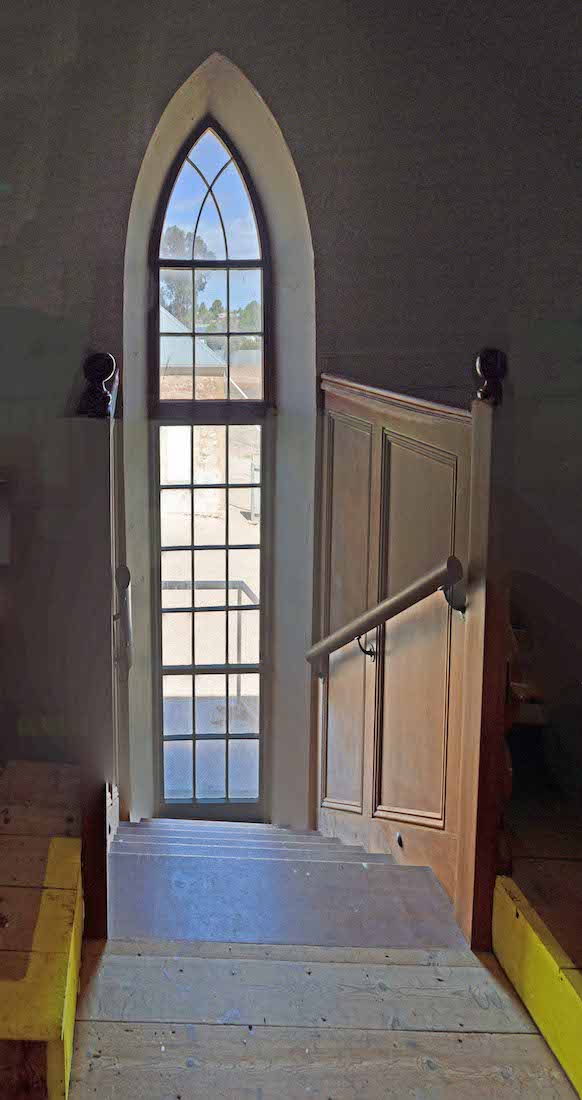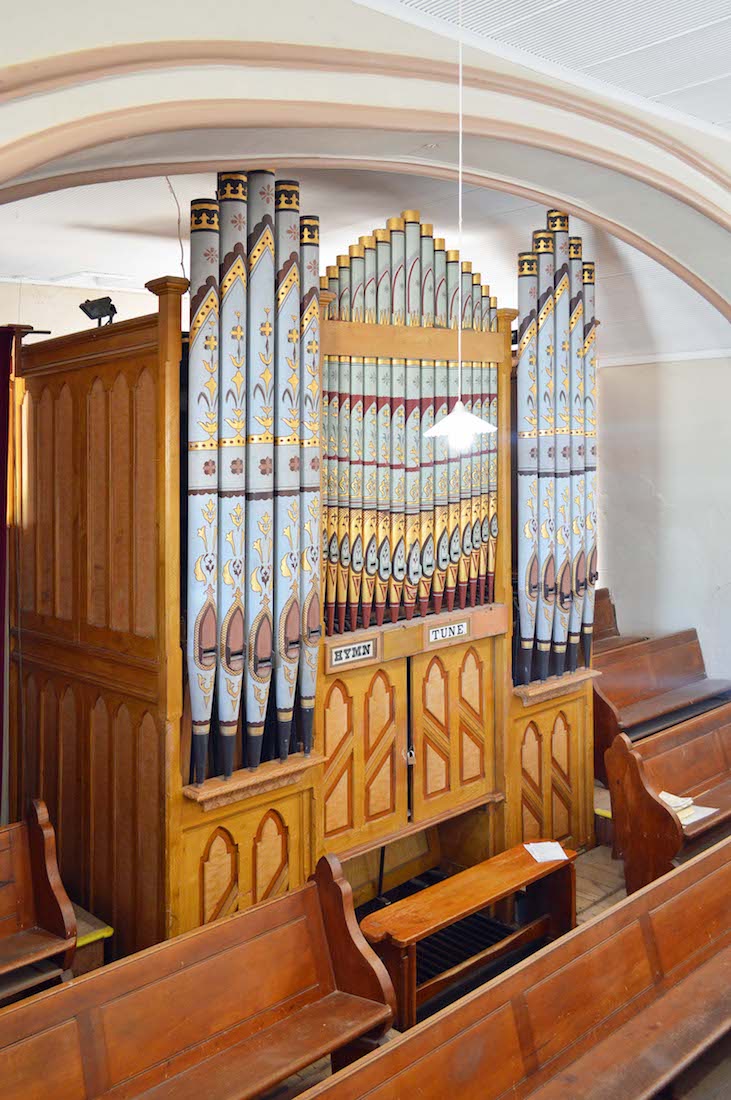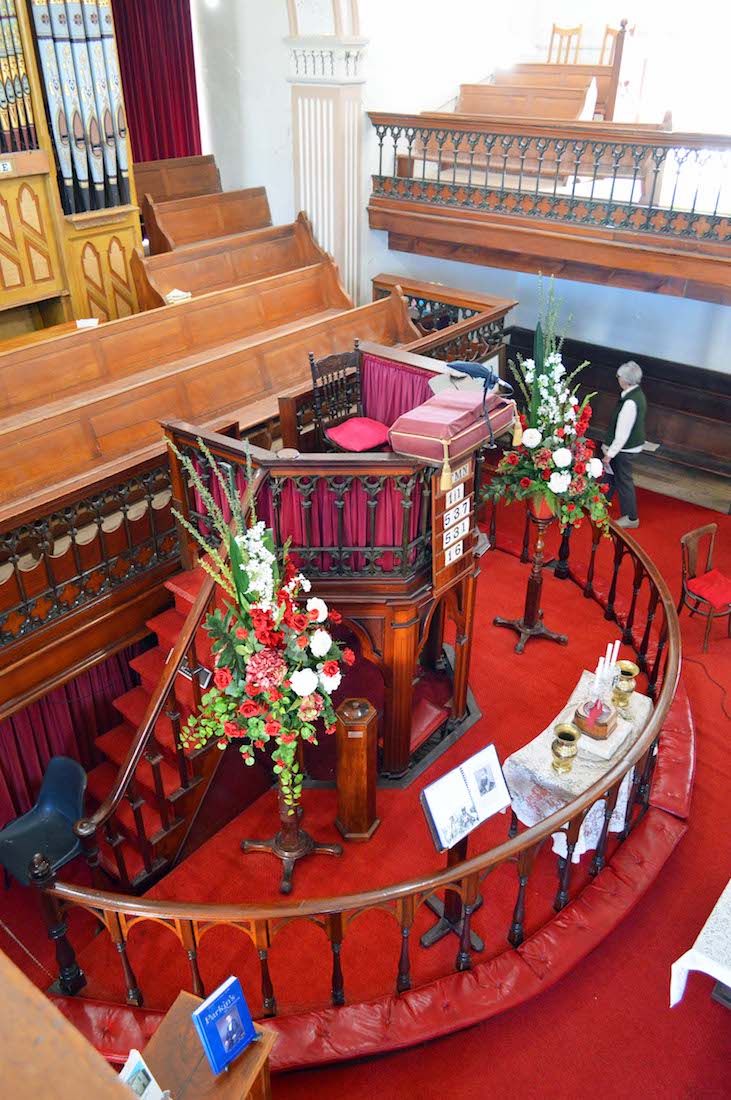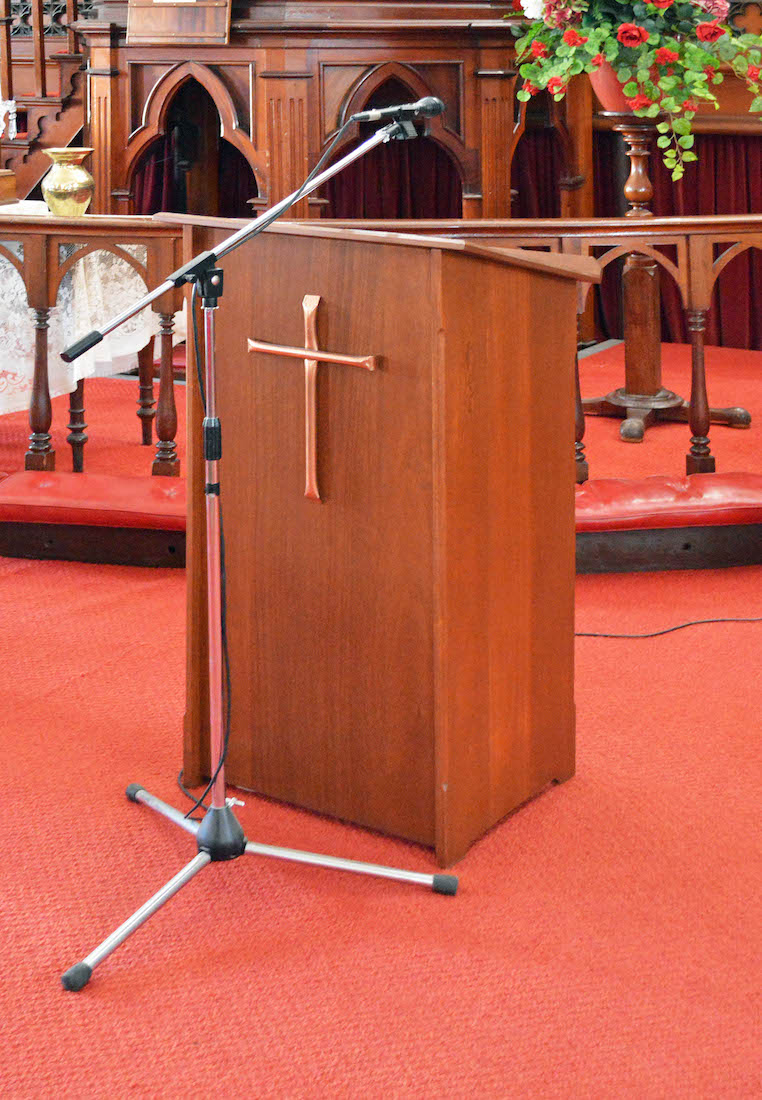
The lectern is used for the reading of the Scripture, and participation by congregational members. INDEX
22. VIEW TO ORGAN PIPES
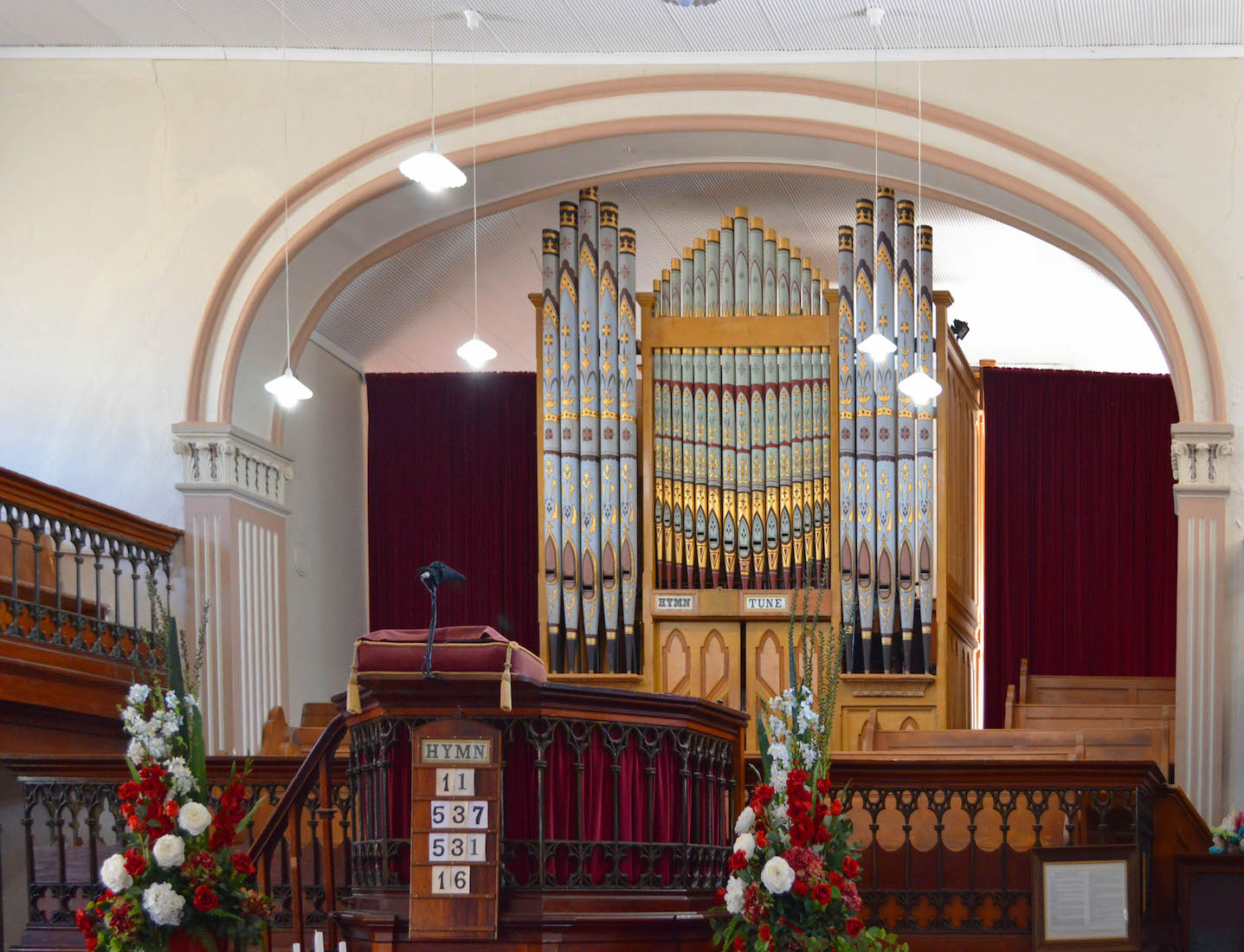
As we make our way across to the South wall, we look back for this view towards the organ pipes.
23. ORGAN MINUTES
There is here a framed sheet of extracts of minutes dating from 1884 relating to the purchase of the organ. So many details which seemed important at the time have since faded into insignificance ... .
24. COMMUNION SET
A small cabinet in the corner contains a ‘retired communion set’ presented to Henry and Phillippa Simmons in recognition of their years of church service.
25. RECORDING A GIFT
Nearby is this curious document acknowledging the work of Mr Fred(erick) May in the erection of the Church balcony, and the presentation to him of a purse containing ten guineas.
26. ORGAN
This is the present organ console – a modern Hammond organ with two manuals.
27. SIDE ORGAN
Another old reed organ stands against the South wall. I recall that this old organ has quite a history in association with this Church, but I can find no documentation of this.
28. SOUTH WALL
Along the South wall there is a clock, and five memorials.
29. MEMORIAL PHOTO
This framed photograph celebrates the life of Church Elder Frederick William Reynolds who lived from 1931 to 2017.
30. CENTENARY PLAQUE
This plaque dates from 2000. It commemorates the centenary of the amalgamation of the Wesleyan Methodists, the Primitive Methodists, and the Bible Christians to form the Methodist Church of South Australia. In 1977 there was further amalgamation to form the Uniting Church. There is also mention of some history of the Moonta Mines Ladies’ Guild.
31. SISTER TRENERRY MEMORIAL
This memorial is in memory of Sister Annie Merle Trenerry, member of the Australian Army Nursing Service, who gave her life at the Fall of Singapore in World War II, 1939 – 1945. Sister Trenerry was a lieutenant in the 2/13th Australian General Hospital in Singapore. She died while trying to escape Japanese strafing.
32. CHURCH BELL PLAQUE
A church bell was donated by the Maylands Uniting Church in 2003. It was given to replace the original damaged Moonta Mines Uniting Church bell. Many of the Maylands congregation had relatives and descendents from the Moonta district.
33. NATIVITY QUILT
This lovely Nativity quilt was presented to the Church in 2012 by Carole Perkins.
34. WEST WALL AND BALCONY
Standing near the Hammond organ, we can look back to view the pews and balcony. Also shown is one of the two large ceiling vents. The iron pillars supporting the gallery were imported from England. They have black markings made from the smoke of a candle to give the appearance of marble!
35. CORNISH FLAG
The Church and district are very proud of their Cornish ancestry, and several black and white Cornish flags hang from the Church balcony. The flag is attributed to Saint Piran, a 5th-century Cornish abbot. One early use of a white cross and black background design is the 15th-century coat of arms of the Saint-Peran family in Brittany.
36. TO THE BALCONY
We now leave the nave and climb the stairs at the West end to the balcony.
37. JOHN MELLEN MEMORIAL
On a wall alongside the stairs is this 1934 memorial to John Mellen. Mellen was a local preacher who gave 50 years of faithful service to the churches of the Moonta district in preaching the gospel.
38. BALCONY END WINDOW
At each end of the balcony, a short flight of stairs mysteriously leads down to a window. However, as we have already seen, these serve as fire escapes. We get different views of the interior of the Church from the balcony.
39. ORGAN
The main pipe organ was built c. 1882-84 by James Broad & Son. It has 2 manuals, 12 speaking stops, 3 couplers, and mechanical action. In this view, the console is shut away, but the organist’s bench is easily seen.
40. LOOKING DOWN ON THE PULPIT
We also have a high view of the pulpit and its surrounds.


